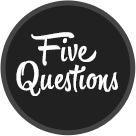It all started in the fifth grade when a few girls, who I thought were my friends, pulled away from me and began forming their own clique. Something as simple as a pair of jeans I wore or a phrase I uttered was suddenly considered “uncool” and caused them to whisper and laugh.
Welcome to the often-complex, sometimes cruel world of female friendships.
As the years passed and I started college, I was relieved to see that the kind of cliques that had developed through middle and high school eased up. For the most part, it was a fresh start for everyone and we were all on the same playing field. Girls with different interests and personality types got along well, residing together in dorms and partying together on campus. The same held true after I graduated and started working. I looked forward to the weekends and met some great people at bars and parties in the city. Sure there were your token gossips and mean-spirited types, but overall the conversations were congenial and the vibe inclusive. Nobody judged you about the career you had chosen or made fun of the outfit you wore.
Fast-forward to when my husband and I got married. I befriended a few great neighbors in the city and, after the kids came along, started hanging out with some wonderful mom friends through my daughters’ schools in the suburbs. However, I met one or two women who seemed to be straight out of the fifth grade, types I like to call “frenemies.” These are women (or men) who pretend to be your friend, but are really anything but. They can be rivals, or simply passive aggressive, or even downright aggressive at times. Perhaps these women have been watching too many episodes of Real Housewives, but for whatever reason they seem hell-bent on creating drama as if we were back in middle school.
In order to determine whether a so-called friend of yours is actually a frenemy, here’s a checklist of behaviors to watch for. Ticking off more than a few of these might mean that it’s time to break up or, if that isn’t possible, at least distance yourself from this toxic person.
The relationship is one-way. This woman reaches out to you whenever she needs a favor, but then always seems busy when you ask her to reciprocate. She’ll text when her kid needs a ride home from school, emails when she wants that recipe for your famous chili, and calls when she wants to vent about an incident with a mutual acquaintance. But when your kid needs a ride home? She lets her phone go to voicemail. God forbid you suggest the two of you grab a coffee sometime. Her schedule is suddenly jam-packed—until she needs something again.
You’re not sure if she’s being kind or condescending. Real compliments are heartfelt and specific (“Thank you for such a lovely dinner last night” or “Whatever you’re doing at the gym is working, because you look amazing in that outfit!”). Instead of showering you with phrases like that, a not-so-true friend instead says things like, “Bless your little heart” or “You are just too cute.” If these generic compliments are accompanied eye rolls and other gestures, they might signify she’s really dissing you. Maybe what she really wants to say is, “Die in hell, you bitch” or “You are an effing idiot.” The problem is, you’re not quite sure. You just know the remark doesn’t feel genuine. In many cases, that’s because it’s not.
Around her, you become a Mean Girl. Another sign of a bad friendship is when you notice you’re beginning to act just as catty as she is whenever you spend time together. When my husband and I used to hang out with this one bunch of couples, one woman in the group would egg me on to talk behind the back of another woman. I remember the “frenemy” would lean over to me and whisper derogatory comments and I, feeling like I couldn’t just turn my back on her, would whisper back. It was so uncool, and I cringe now, remembering that I took part in ripping on an innocent person. Finally, I realized it was best to avoid someone who brings out the worst in me like that or, better yet, tell her to shut up when she starts bad-mouthing someone.
She has a razor tongue. This mean-spirited “friend” talks maliciously behind everyone’s back or, at times, even straight to their face. And by everyone, I mean she ridicules her husband, her parents, her children and her friends. Sure, venting about people can be cathartic if it’s done in a constructive way, but making offensive, cutting comments is cruel. I knew one mom who called her children “stupid” while they were standing right in front of her. She didn’t have many nice things to say about her husband and other people in her life, either, so I’m pretty sure she was ripping me apart behind my back. This person has emotional problems, so stay away. If she’s being particularly harsh to her children, though, that could signify verbal abuse, and you might want to point out to her that what she’s doing can damage her children’s self esteem.
She’s never quite happy for you. When something great happens to you or someone in your family, and you share the news with this person, she seems anything but excited for you. If you bring up an upcoming vacation or an exciting new job, and she clearly lacks enthusiasm, it may be that she’s jealous or, even worse, genuinely apathetic. Ironically, this same type of “friend” may feel slighted if you withhold information and she’s the “last one to know.” She wants to be in the loop, but not because she cares about you. Real friends want to celebrate your successes, just as they should be there for you when things don’t go so well.
She doesn’t have your back. This friend is just not there when you need her. Whether another person in your life has insulted you and your friend doesn’t stick up for you, or if something is bothering you but she’s always MIA when you need to talk, consider the possibility that this person isn’t a true friend. Similarly, if this woman has hurt your feelings and she doesn’t want to apologize or discuss it in the aftermath, she may not be the real deal. Friendships, like all relationships, have their ups and downs, and true friends can weather a few minor storms. If you have your doubts about about someone and their ability to be a true friend, take a look at their other relationships. If you see similar patterns of behavior, take that as a sign.
So these are just a few ways to spot a frenemy. The bottom line: If it feels strained, awkward or negative when you hang out with this person, then it’s probably time to surround yourself with more positive individuals—true friends—that bring out your best.















2014/09/05 at 3:15 pm
So true. We all have questioned our friendships with friends and couples we know. Best to stay away from these not so sincere people.